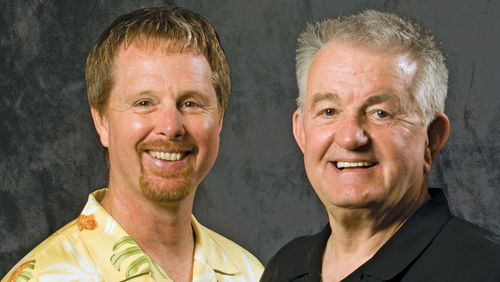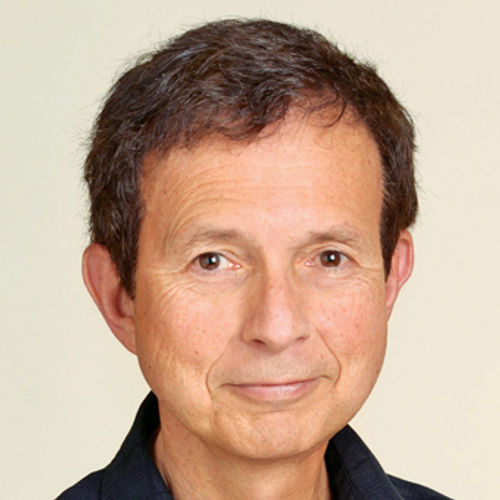Though it's been several years since the multilevel marketing company known as YTB (formerly Your Travel Business) became a source of consternation within the industry by drawing dilettantes into the retail space in droves, travel professionals have long memories, and their memories are not happy ones.
And while hosting agencies that are built on a multilevel marketing (MLM) model can still be found -- in fact, some argue there are more of them than ever before -- they remain off the radar of most industry professionals, in large part because they don't come close to the size or scale of YTB at its height.
Nor was YTB the first of its ilk. In the 1990s, it was the giant travel MLM known as WorldClass Travel Network (WCTN) that had a nervous industry buzzing. As for its size and scope, Tom Ogg of Ogg Marketing Group recalled, "WorldClass Travel Network made YTB look like it was just children in a playground."
In February 1997, the Federal Trade Commission (FTC) charged WCTN and its executives with unfair and deceptive practices. The travel industry welcomed the charges, Ogg said, but ultimately "what happened was the exact opposite of what everybody wanted to happen."

Tom Ogg
WCTN sold a "travel tutorial kit" for $495, according to the FTC lawsuit, which included a travel agent identification card that the company claimed would entitle purchasers to travel discounts and upgrades available only to agents.
Those claims led travel professionals to derisively dub WCTN and copycat companies "card mills," a term that has shadowed travel MLMs ever since.
WCTN also offered a network marketing kit for $49 that enabled purchasers to sell the travel tutorial kit to others; they would receive $100 for every kit sold and would also get override commissions from their recruits.
"The owners of WorldClass Travel Network started negotiating with the FTC, and the FTC subsequently came up with a settlement ... that spelled out exactly how a card mill could legitimize themselves," Ogg said.
Under the terms of the settlement, WCTN agreed to pay more than $3 million in refunds to some of the 51,000 consumers who had purchased the travel tutorial. WCTN also agreed not to engage in pyramid schemes; not to misrepresent earnings, sales, discounts, upgrades or benefits that the kit's purchasers could obtain; and to disclose the number of purchasers who actually made the amount of money the company claimed they could make as well as the percentage of purchasers who earned that amount.
WCTN was not the first of its kind, Ogg said, but the lawsuit was a game-changer that provided the blueprint for future MLMs to operate within the retail travel channel. From the very beginning, he said, MLMs promised consumers agent-level travel deals and upgrades and published "knock-off IATA cards," he said.
"Prior to the WorldClass Travel Network settlement, there were no standards that a card mill could operate under at all," Ogg said. "But [following] that settlement, unfortunately, card mills, MLMs, network marketers are an acceptable channel of distribution for suppliers, much to the chagrin of travel professionals. And travel professionals have been lumped into, you know, how do you tell the difference between a card-mill agent and a travel professional?"
YTB pushes the envelope

Scott and Lloyd "Coach" Tomer, founders of YTB.
YTB Travel Network, under parent company YTB International, was the next MLM to really make headlines. It was formed in 2001, and at its height, it reportedly had nearly 140,000 "referring travel agents" (RTAs) under the leadership of Scott Tomer, Lloyd "Coach" Tomer and the late Kim Sorensen. (The Tomers did not respond to repeated requests for comment for this report.)
"I think one year, our top year, probably 2007 or '8, we sold, oh, $600 or $700 million worth of travel; the year before that it was $400 or $500 million," said Andy Cauthen, who served in a variety of leadership roles at YTB, most recently as president and CEO from 2012 to 2014. In Travel Weekly's 2009 Power List, the company reported 2008 travel sales of $424.1 million.
Today, Cauthen is the president and CEO of PlanNet Marketing, a network marketing company that provides marketing services for InteleTravel, a travel company that is not an MLM.
When asked how YTB grew so large, he said, "Momentum is something that can be captured."
Starting in 2005, YTB, following the lead of MLM giants like Amway and Mary Kay Cosmetics, began investing a great deal of money and effort into its national meetings and training programs, motivational events that contributed substantially to the company's growth.
"People just got caught up in it," Cauthen said. "It was a great spirit. It was like a college football game; things got really exciting."
Travel industry anathema
YTB ruffled many feathers in the retail channel, especially when it sold enough travel to land itself on Travel Weekly's Power List, where it reached a high of No. 25 in 2009.
Its agents were known for aggressively attempting to recruit more people for their "downline" -- those who paid the RTAs' part of the commission on every sale they made -- and for annoying suppliers with questions and requests that most travel professionals considered inappropriate.
Eventually, some suppliers simply ceased doing business with YTB and its agents.
Those kinds of problems did not escape the attention of YTB's leadership.
"It was horrible," Cauthen recalled, describing as "embarrassing" reports of representatives taking advantage of familiarization trips and exhibiting unprofessional behavior.
"We wanted to shoot some people," he said, adding that the behavior of some RTAs "was just horrible ... and we terminated them. We terminated people in that environment."
Many of the issues, he said, arose from YTB's rapid expansion.
"We were growing at a rate of about 200% and 300% per year, and YTB agents were everywhere," he said.
"Out of 100,000-plus agents, you're going to have some bad apples. ... But you're going to have a few of those people in any organization, in any society, in any city; you've got some bad eggs, you've got criminals. And we had them at YTB; they were the ones who gave us the bad name."
Figuring that quality training would combat some of the issues, Cauthen said, YTB spent "millions of dollars" on training initiatives, including hosting regional training events around the country.
"We were serious about it," Cauthen said of selling travel. "We were so misperceived by the industry."
He estimated that about 20% of YTB's agents were productive and serious about selling travel. For the other 80%, he said, it "was a very casual, part-time thing."
"A lot of productive agents started with those [YTB training] courses. I think I did the right thing." — Marc Mancini
Though she is no longer a YTB agent, Kathryn Hoyt was with the company until just a few years ago. She was recruited by a friend, Sandra Holder, in the mid-2000s, and today, the two are still selling travel through their TravelKatz agency.
Hoyt said that when she started, she had no experience in the travel industry. But she knew she wanted to sell travel and credited YTB with giving her a solid education.
"When I first got in, I knew nothing about travel except how to book a flight for myself, and I had never been on a cruise," she said. "I had never been out of the country. And YTB opened up that path for me, and it's been phenomenal."
Hoyt said that Marc Mancini, a leading industry educator and president of Marc Mancini Seminars and Consulting, was instrumental in helping develop YTB's training series, which started her on her career path.
Mancini recalled recently that "when YTB approached me to create a travel agent training program, I was very conflicted about whether to proceed or not."
Mancini said that YTB's leaders "insisted that they wanted a major, high-quality and extensive program. As an educator, the opportunity to increase the knowledge and skills of thousands was tempting. But at the same time, I worried that this training might only be used to deflect criticism and not to really professionalize their agents."
Before deciding, Mancini recalled, "I contacted three very senior travel executives at major companies for advice. All three said about the same thing: Do it, but with caution, and set stringent requirements."
Mancini said that before agreeing to help develop a curriculum, he gave YTB a list of 14 preconditions.

Marc Mancini
"For example, I insisted that their agents stop recruiting [from] attendees at major industry conferences and that a senior YTB executive be there to enforce it. I also insisted that they reward their agents, through higher commissions, for successfully completing the program, that all test results be scored by an independent, outside company, that they incentivize their agents to take supplementary training from CLIA and that if they were ruled to have an illegal business model, our agreement would be null and void. To my total surprise, they satisfied all 14 of my demands."
While he admits now that he "took a lot of flack for my decision," he adds, "All I know is a lot of productive travel agents started with those courses, and the ones that weren't serious about it are long gone. I think I did the right thing."
Lawsuit 'cost the company'
Industry and government scrutiny, coupled with some disgruntled RTAs, led to several lawsuits. In one, California in 2009 alleged that YTB was operating a pyramid scheme, had made misrepresentations and had committed fraud by touting potential profits and industry discounts.
Like WCTN, YTB settled and was ordered to pay $1 million in penalties, costs and restitution.
While YTB's notoriety kept it in the news within the trade for the next few years, business declined quickly after the settlement.
Cauthen said that until the lawsuit, YTB had been on track to sell $1 billion worth of travel in 2009, but the suit "cost the company."
According to a posting on YTB's website, ytb.com, the company stopped enrolling new RTAs on March 2, 2015.
The same posting also states that existing RTAs are still supported, and former RTAs can reactivate their status if they choose.
A press release issued on that same date announced that Sorensen's daughter, Shelly Coppersmith, had been named CEO of YTB. (Coppersmith did not respond to repeated requests for comment for this report.)
The press release also stated, "YTB has made huge strides in travel sales over the past year, furthering their growth and solidifying its position in the travel industry by providing an excellent host agency for home-based travel agents."
The same press release stated that former CEO Scott Tomer had been named CEO of Surge365, a "direct sales company" whose recent marketing literature posted on its website, surge365.com, makes it appear to be a travel-selling MLM.
Bringing new blood to travel retail
Like Hoyt, many of the agents whom YTB recruited are still selling travel.
"A lot of people were calling YTB a card mill, and I can understand that," Hoyt said.
"I sympathize with the bona fide storefront travel agency that YTB was a card mill, along with a bunch of other companies that were doing the same thing, networking and bringing people in."
On the other hand, she added, "YTB gave everybody the opportunity to become a travel agent at a low cost."
YTB also fed new agents into an industry that needed to attract new blood.
"That was the shot in the arm the travel industry did need," Hoyt said. "Whether they realize it or not, I don't know."
Mancini added that MLMs provided an entry point for minorities, as well.
"In retrospect, MLMs served as an important gateway into the travel agent business for many minorities, especially African-Americans and Latinos, some of whom have now become very successful, especially with group business," he said.
Cauthen said that network marketing can give people an opportunity to add much-needed income in tight times.
"Five hundred dollars a month extra in a family would seriously impact their economic picture," he said. "[It] would make the difference between happiness and sadness; it would make the difference between the car payment and no car payment. So network marketing is an environment that has an appeal to the masses."
MLMs today
While the travel MLM business model has never gone away, the remaining examples don't rival YTB's size, and because they are so small, they are no longer perceived as much of a threat by the industry.
In addition, today's versions are moving away from the term "multilevel marketing" preferring to call themselves "network marketing" companies in a bid to shed the card-mill stigma.
"[MLMs are still] out there, but they've learned how to not engage the chagrin of the orthodox travel business."— Tom Ogg
Bob Joselyn, president and CEO of Travel Agency Management Solutions, said he hadn't heard anything about MLMs lately.
In fact, when he and Eric Maryanov, an agency owner and co-facilitator of Travel Agency Management Solutions, recently met with 20 agency owners representing a variety of consortia and industry groups, Maryanov recalled, "When we asked the room, everybody really referred to what had happened several years ago with card mills but nothing currently. It's just not an issue right now."
Ogg has taken notice that MLMs are still around. In fact, he said, while they're smaller in size today, "there's more now than ever. ... They're all out there, but they've learned how to not engage the chagrin of the orthodox travel business."
Ogg said their recruiting efforts are more one-on-one, encouraging people to visit their website and book travel, and their sales numbers are low.
Phocuswright's Douglas Quinby said, "The reason why this model can't work in travel is because successful MLMs have a differentiated or exclusive product. But that doesn't exist in travel. The agency doesn't have access to a differentiated product, and the hassle isn't worth the small discounts on a small volume of product. Any agents who do have the hustle to make it worthwhile would probably move to a legit agency or host that is serious about travel."
Two new MLMs on the block
Even so, being serious about travel is the premise behind two new travel MLMs. One is headed by a network marketer, the other by a travel agent.
Dusty DeVaughn, the CEO of Travelution, entered the industry as an RTA for YTB. He's now starting his own travel MLM, but his emphasis is on offering training courses. No travel can be sold until an initial 40-module course is completed.

Ron Archer
Ron Archer of Archer Travel Services is also getting involved in the MLM game as the CEO of Evolution Travel. He, too, is putting an emphasis on training and support, with the backing of his 63-year-old travel business.
Both said they are creating travel companies that offer a network marketing aspect -- not the other way around. (See related report, "New MLMs putting emphasis on training.") Even so, many travel professionals are still quick to speak out against MLMs.
"We hope that they don't raise their heads again in our industry because we all know it just gives everybody a black eye, and it's not healthy," said Gary Fee, founder of the Outside Sales Support Network. "It's not a healthy distribution channel for our industry -- at least for the travel agent community, that's for sure."
Ogg said he would continue to work to differentiate traditional agents from MLM agents and would encouraged others to do the same.
"Travel professionals themselves really need to identify and market their specific value proposition to consumers," he said. "It needs to happen because there's still confusion about what is a travel agent."